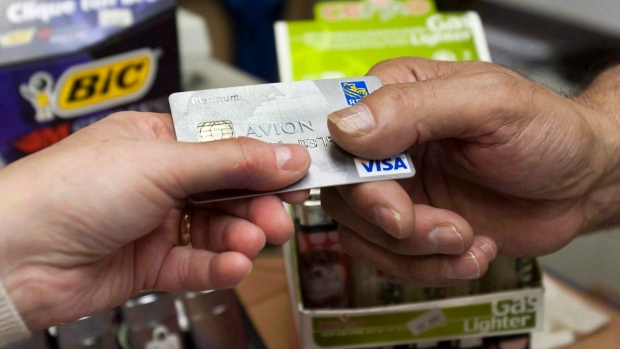Aug 22, 2017
Fewer Canadians falling behind on their mortgage debt: TransUnion
BNN Bloomberg

Canadian consumers may be taking on more debt, but they also seem to be managing those higher debt levels. Serious overall delinquency rates on non-mortgage debt are down for a third straight quarter in Canada, according to a new study from TransUnion.
While the average consumer non-mortgage debt grew by 2.7 per cent to $22,154 in the second quarter of 2017, the overall delinquency rate for that dropped by a total of eight basis points to 2.65 per cent.
Installment loans showed the greatest improvement in delinquency rates, shedding 22 basis points to an even four per cent. Lines of credit and mortgage loans also saw a lower rate with dips of nine (to 1.16 per cent) and four (to 0.56 per cent) basis points respectively.
Credit card delinquency increased marginally over the quarter with a rise of five basis points to 3.11 per cent and there was a nine basis point uptick in auto loan delinquency to 1.8 per cent.
“With the macroeconomic backdrop of a growing economy, low unemployment and strong consumer confidence, we observed robust growth in installment and auto loans,” said Matt Fabian, director of research and analysis for TransUnion Canada. “At the same time, credit card volumes show signs of continued saturation and lines of credit remain relatively stagnant, albeit with potential opportunities for lenders in specific markets.”
CANADIAN CONSUMER DELINQUENCY - Q2 2017
| Category |
Avg. Balance/ Customer |
Annual % Change |
Serious Delinquency Rate |
Annual Change (bps) |
|---|---|---|---|---|
| Overall | $22,154 | 2.7 | 2.65 | -8 |
| Credit Cards | $2,840 | 3.11 | 3.11 | +5 |
| Installment Loans | $20,466 | 5.5 | 4 | -22 |
| Auto Loans | $19,087 | 2.57 | 1.8 | +9 |
| Lines of Credit | $36,342 | 0.74 | 1.16 | -9 |
| Mortgage Loans | $198,781 | 4.78 | 0.56 | -4 |
Data courtesy of TransUnion




